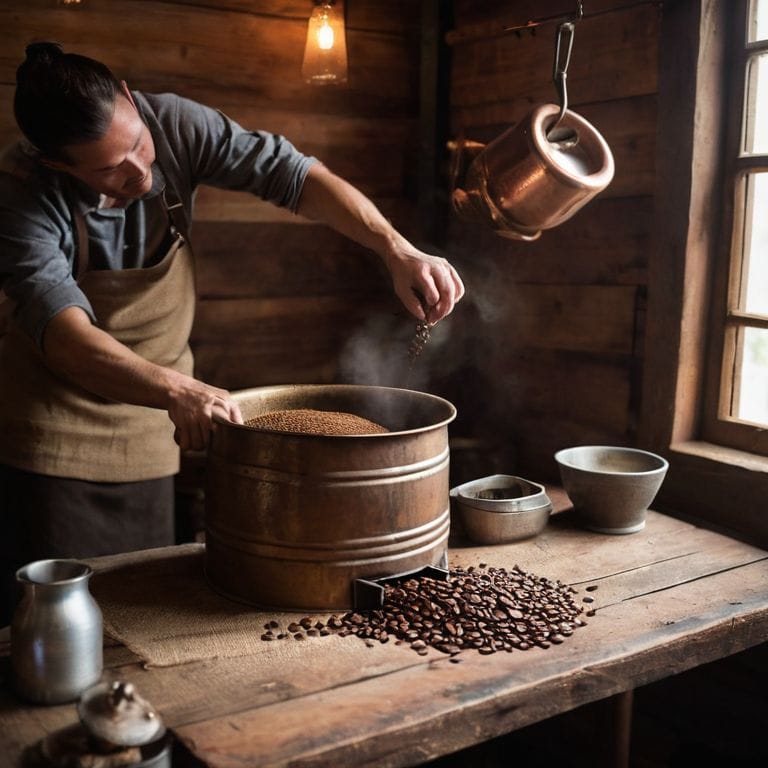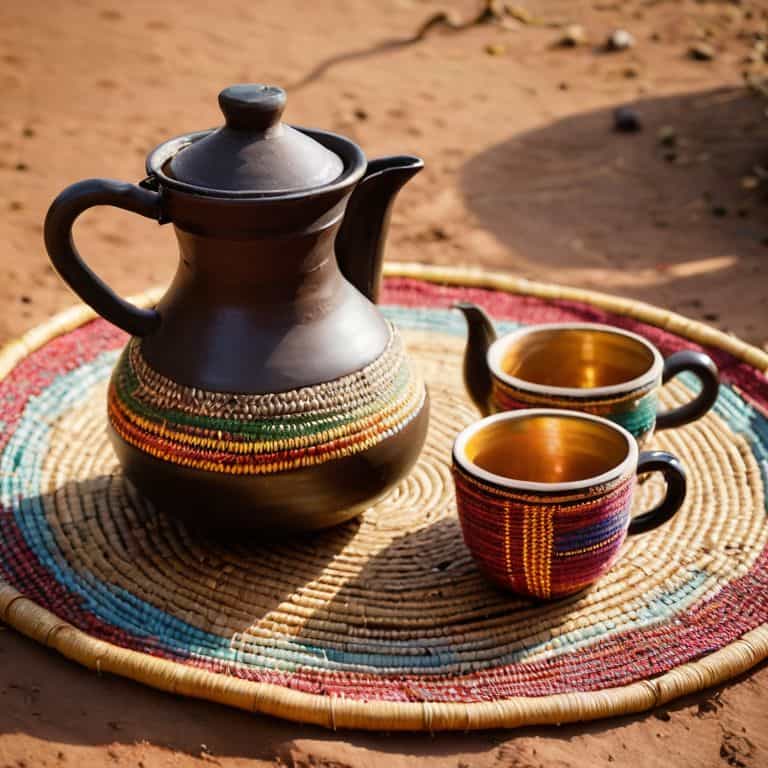I still remember the day I stumbled upon a small, independent coffee roaster in a quaint town in Latin America. The aroma of freshly roasted _specialty coffee_ filled the air, and I was immediately drawn to the rich flavors and distinct notes that danced on my palate. As I delved deeper into the world of coffee, I began to realize that the term “what is specialty coffee” was often shrouded in mystery, with many coffee connoisseurs and enthusiasts struggling to define it. For me, the essence of specialty coffee lies in its ability to transport me to a specific region, with its unique _terroir_ and processing methods that set it apart from other types of coffee.
As someone who has spent years working directly with coffee farmers and roasters, I’m excited to share my knowledge and experience with you, helping to demystify the concept of _what is specialty coffee_. In this article, I promise to take you on a journey to the heart of specialty coffee, exploring the factors that contribute to its distinct flavor profile and the dedication of the farmers who cultivate it. I’ll share with you my passion for the craft, from the careful selection of coffee _cherries_ to the meticulous roasting process, and provide you with a deeper understanding of what makes specialty coffee truly special. By the end of this journey, you’ll be equipped with a newfound appreciation for the art and science behind specialty coffee, and a better understanding of what to look for when searching for that perfect cup.
Table of Contents
Uncovering Specialty Coffee
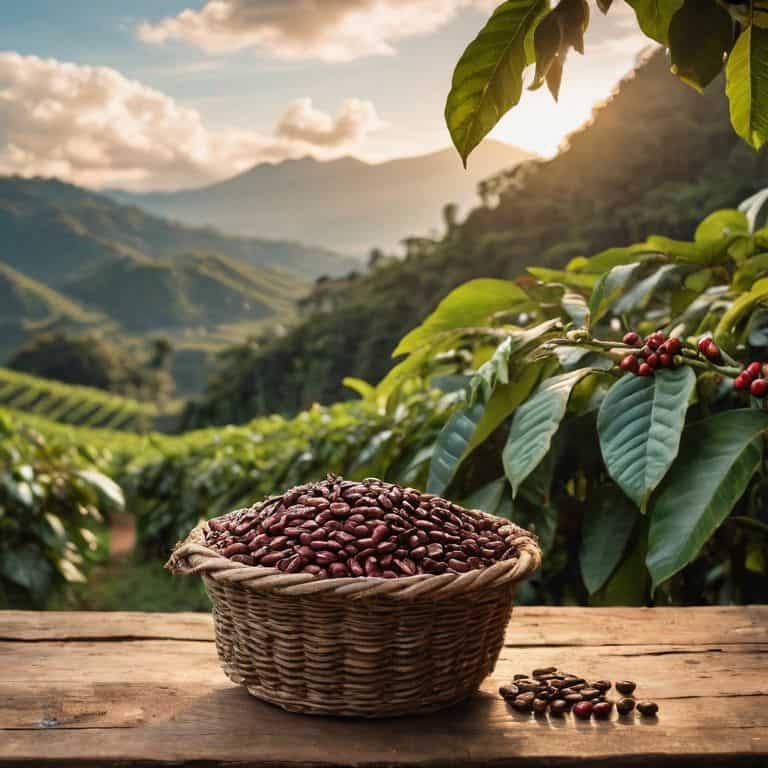
As I delve into the world of specialty coffee, I’m reminded of the third wave coffee movement, which has revolutionized the way we think about and experience coffee. This movement is all about highlighting the unique characteristics of each coffee, much like a fine wine. I’ve had the privilege of visiting coffee farms in Latin America and Africa, where I’ve seen firsthand the careful attention to detail that goes into producing high-quality beans. From coffee bean grading to harvesting, every step is a labor of love.
When it comes to specialty coffee, the roasting process is an art form. Specialty coffee roasting techniques require a deep understanding of the beans and their potential. As a head roaster, I can attest that it’s a delicate balance between bringing out the desired flavors and avoiding over-roasting. The result is a cup that’s full of nuance and complexity, with coffee cupping notes that transport you to the farm where the beans were grown.
For me, the beauty of specialty coffee lies in its connection to the land and the people who cultivate it. Coffee farm sustainability is a critical aspect of this industry, as it ensures that the farms can continue to thrive for generations to come. By supporting independent coffee shops that source their beans directly from these farms, we’re not only getting a superior cup of coffee, but we’re also contributing to a more equitable and environmentally conscious system.
Coffee Bean Grading for Perfection
As I delve into the world of specialty coffee, I’m reminded of the meticulous process of coffee bean grading, which is essential for achieving perfection. This labor-intensive process involves evaluating the size, shape, and quality of each bean to ensure only the best make it to the roasting stage.
The goal of coffee bean grading is to achieve uniformity in the beans, which directly impacts the flavor and aroma of the final product. By carefully selecting and sorting the beans, roasters can bring out the unique characteristics of each coffee variety, allowing the drinker to experience the full depth of flavors that specialty coffee has to offer.
Third Wave Coffee Movement Roots
As I delve into the world of specialty coffee, I find myself drawn to the roots of the third wave coffee movement. This era, which began in the 1990s, marked a significant shift in the way coffee was perceived and consumed. It was no longer just a morning pick-me-up, but an experience that could evoke emotions and spark curiosity.
The third wave coffee movement is built on the foundation of high-quality beans, sourced from small, independent farms and cooperatives. This focus on quality and transparency has enabled consumers to connect with the story behind their coffee, from the farm to the cup.
What Is Specialty Coffee
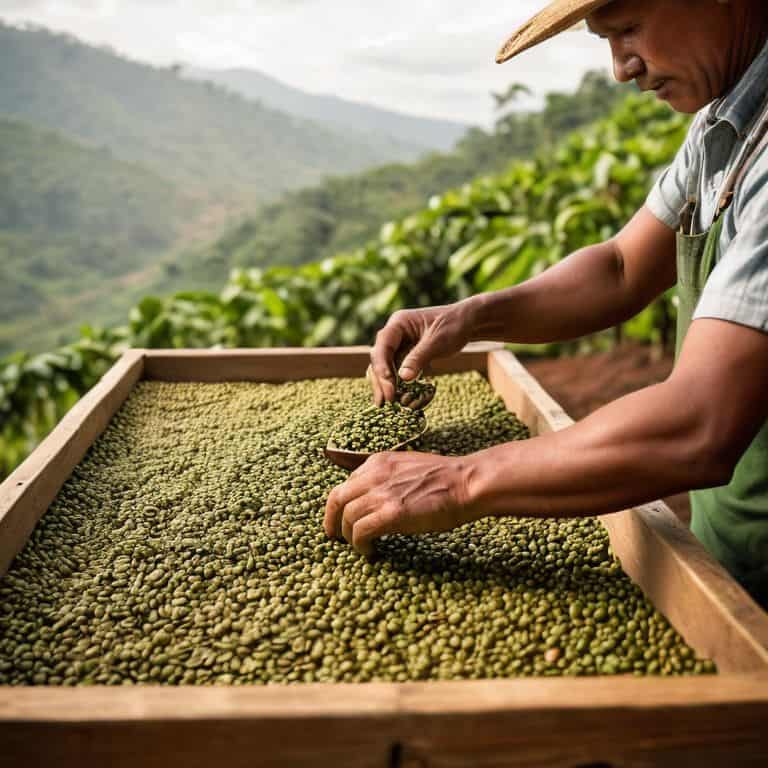
As I delve into the world of specialty coffee, I’m reminded of the third wave coffee movement, which has been instrumental in shaping the industry’s focus on quality and distinct flavor profiles. This movement has not only raised the bar for coffee producers but also educated consumers about the nuances of specialty coffee. For me, it’s about more than just a cup of coffee – it’s about the story behind the beans, the farmers who carefully nurture them, and the coffee bean grading process that ensures only the best make it to our roasters.
Specialty coffee roasting techniques are an art form, requiring a deep understanding of the beans’ origin, altitude, and processing method. I’ve had the privilege of working with farmers who prioritize coffee farm sustainability, and it’s remarkable to see the impact it has on the flavor and quality of the coffee. From the rich, volcanic soils of Latin America to the high-altitude farms of East Africa, each region brings its unique characteristics to the table.
As a head roaster, I’ve had the opportunity to work with independent coffee shops, helping them develop unique coffee cupping notes that showcase the distinct flavors of our specialty coffees. It’s a collaborative process that requires a passion for storytelling and a commitment to quality. By highlighting the nuances of each coffee, we can transport our customers to the rolling hills and lush forests where our coffee cherries are grown, giving them a deeper appreciation for the craft and the people behind it.
Specialty Coffee Roasting Techniques
As I reflect on my years of working with coffee farmers, I’ve come to realize that specialty coffee roasting is an art form that requires a deep understanding of the beans’ origin and characteristics. The roasting process is where the magic happens, and the right technique can elevate the flavor of the coffee to new heights.
I’ve experimented with various roasting methods, but I believe that small-batch roasting is the key to bringing out the unique flavor notes of each coffee. By roasting in small batches, I can carefully monitor the temperature and time to ensure that each bean is roasted to perfection, resulting in a more complex and nuanced flavor profile.
Sustainable Coffee Farm to Cup Journey
As I reflect on my journeys to coffee farms, I’m reminded of the delicate balance between nature and nurture that specialty coffee embodies. From the sun-kissed hills of Ethiopia to the lush valleys of Colombia, every farm has its unique story of struggle and triumph. I’ve seen firsthand how sustainable farming practices can make all the difference in preserving the environment and ensuring a consistent supply of high-quality beans.
The journey from farm to cup is a long and winding one, filled with challenges and opportunities. As a head roaster, I’m committed to supporting small-scale farmers who are dedicated to producing exceptional coffee while protecting the land and their communities. By choosing specialty coffee, consumers can be part of this circular economy, where every cup helps to foster a more equitable and environmentally conscious coffee industry.
Unraveling the Mysteries of Specialty Coffee: 5 Essential Insights
- Embracing the concept of terroir, just like in wine, to understand how the unique combination of soil, climate, and altitude contributes to the distinct flavor profile of each coffee
- Recognizing the meticulous process of coffee bean grading, which ensures that only the finest, defect-free beans make it to the roasting stage, thereby preserving the integrity of the coffee’s flavor
- Appreciating the art of specialty coffee roasting, where the roastmaster carefully coaxes out the optimal balance of acidity, body, and flavor notes from each carefully selected batch of green coffee beans
- Understanding the significance of sustainable farming practices in the production of specialty coffee, from environmentally friendly pest control methods to fair labor conditions for farm workers
- Experimenting with different brewing methods to unlock the full potential of your specialty coffee, whether it’s pour-over, French press, or siphon brewing, to experience the nuanced flavors and aromas that each cup has to offer
Key Takeaways from the World of Specialty Coffee
I’ve learned that specialty coffee is more than just a beverage – it’s an experience that connects us to the earth, the farmers, and the rich flavors of a specific place, with each bean telling a unique story of its origin and craftsmanship
The journey from farm to cup is a complex one, involving meticulous grading, careful processing, and precise roasting techniques that preserve the inherent qualities of the coffee cherries, making every sip a testament to the hard work and dedication of coffee producers
By embracing the world of specialty coffee, we not only indulge in a superior sensory experience, but we also support sustainable farming practices, fair trade, and the preservation of biodiversity in coffee-growing regions, making our daily cup a force for good in the world
The Essence of Specialty Coffee
Specialty coffee is a symphony of flavors, a dance of terroir and technique, where every sip tells the story of the earth, the farmer’s hands, and the passion that transforms a simple cherry into a work of art.
Samuel Jones
Embracing the Essence of Specialty Coffee
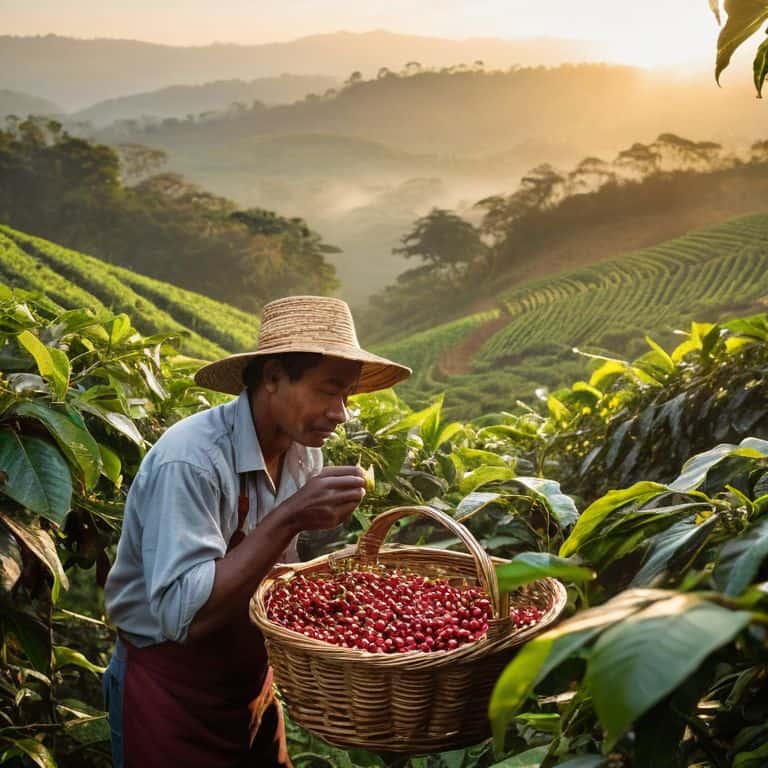
As I reflect on our journey to understand what is specialty coffee, I’m reminded of the intricate dance between nature, nurture, and craftsmanship. From the third wave coffee movement roots to the meticulous coffee bean grading for perfection, every step plays a vital role in crafting the unique flavor profiles that specialty coffee enthusiasts adore. The sustainable coffee farm to cup journey is not just about the destination; it’s about honoring the hands that cultivate, harvest, and roast these precious cherries. By embracing the story behind each bean, we not only elevate our sensory experience but also contribute to a more equitable and environmentally conscious industry.
As we conclude this exploration of specialty coffee, I invite you to join me in a celebration of the senses. Let us cherish the terroir that gives each coffee its distinct character, the processing methods that coax out its nuances, and the farmers who dedicate their lives to nurturing these crops. In the world of specialty coffee, every sip is an opportunity to connect with the earth, with the people, and with the passion that goes into creating something truly remarkable. So, let’s raise our cups and toast to the journey, to the people, and to the exquisite flavors that make specialty coffee a true gastronomic treasure.
Frequently Asked Questions
What sets specialty coffee apart from other types of coffee?
For me, it’s the distinct flavor profile that sets specialty coffee apart. I believe it’s the combination of factors like high-altitude farms, unique processing methods, and meticulous harvesting that creates a truly exceptional cup. The nuances of soil, climate, and craftsmanship all shine through in every sip.
How do factors like soil acidity and processing methods impact the flavor of specialty coffee?
Soil acidity and processing methods are the unsung heroes of specialty coffee flavor. I’ve seen how a farm’s soil pH can bring out bright, citrus notes or rich, chocolatey undertones. And processing – whether washed or natural – can dramatically alter the flavor profile, from clean and tea-like to fruity and wine-like. It’s a delicate balance that requires careful consideration.
Can specialty coffee be produced using any coffee bean, or are there specific varieties that are better suited for this type of coffee?
While any coffee bean can be used to produce specialty coffee, certain varieties like Gesha, Yirgacheffe, and Kenyan SL-28 are renowned for their distinct flavor profiles and acidity, making them particularly well-suited for showcasing the nuances of specialty coffee.
